
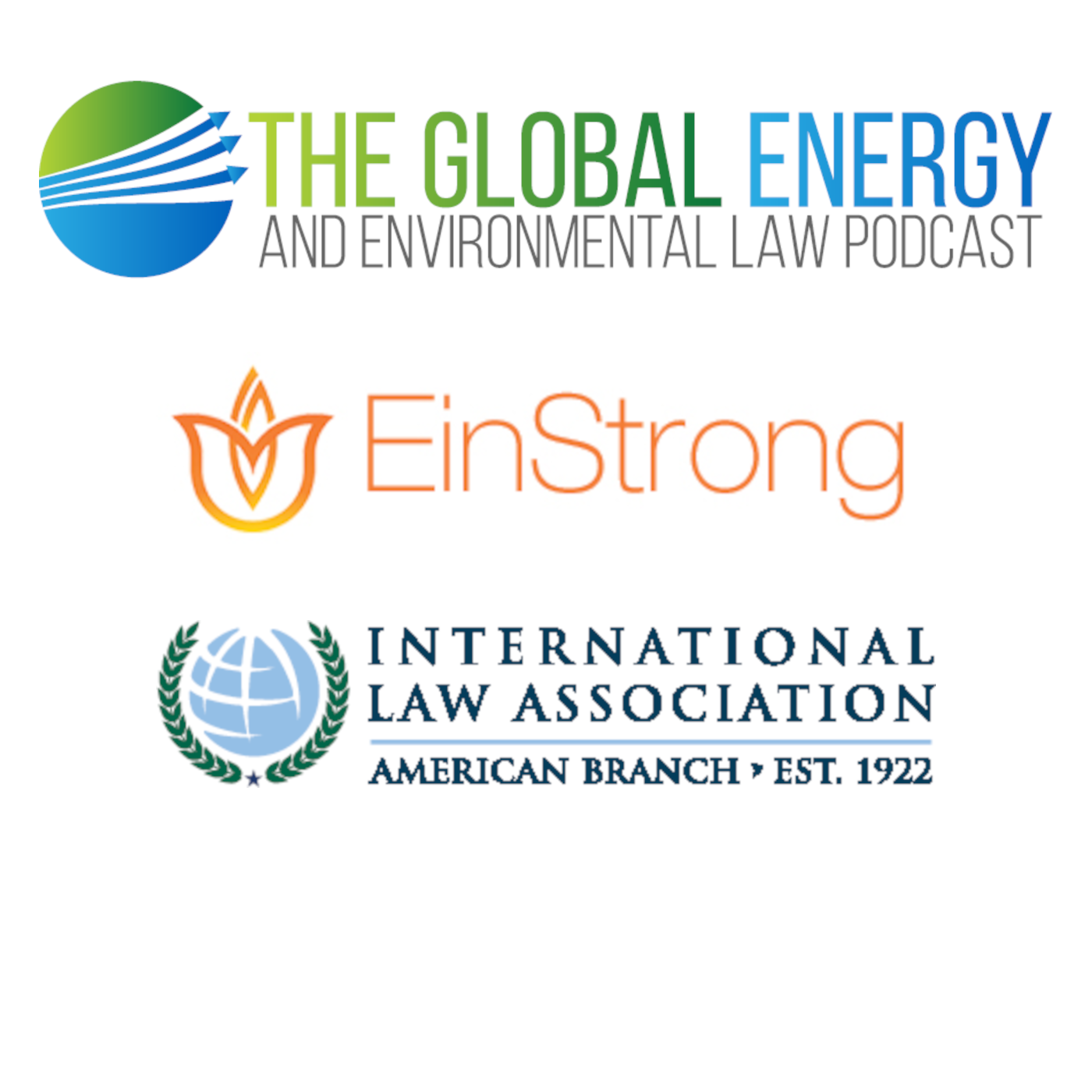
36.6K
Downloads
29
Episodes
A discussion of global and local environmental law issues. Produced by the EinStrong Foundation and the International Environmental Law Committee of the American Branch of the International Law Association. Hosted by Myanna Dellinger.
A discussion of global and local environmental law issues. Produced by the EinStrong Foundation and the International Environmental Law Committee of the American Branch of the International Law Association. Hosted by Myanna Dellinger.
Episodes
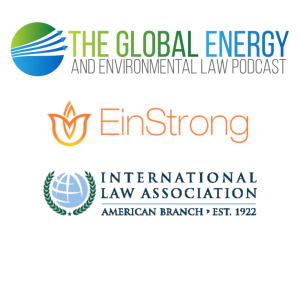
Monday Aug 29, 2022
Educating girls in Africa using carbon offsets
Monday Aug 29, 2022
Monday Aug 29, 2022
Myanna Dellinger interviews Guðný Nielsen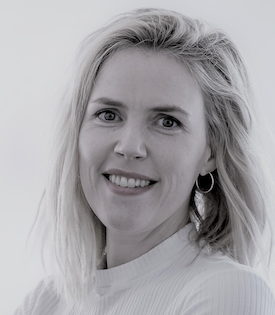 who explains how her organization, SoGreen, uses carbon offsets for the education of girls in Africa and how that, in turn, helps reduce climate change.
who explains how her organization, SoGreen, uses carbon offsets for the education of girls in Africa and how that, in turn, helps reduce climate change.
SoGreen is an Icelandic Climate Tech startup based out of her hometown Reykjavik, Iceland. SoGreen focuses on scaling up climate solutions that are founded in social impact and community development in low-income countries.

Friday Aug 12, 2022
Climate Change Governance
Friday Aug 12, 2022
Friday Aug 12, 2022
While the U.S. and other national governance systems are arguably not taking sufficient and certainly not sufficiently urgent action against climate change, other inroads may work better. Further, new behavioral science shows new ways of persuading both corporations and individuals to think and act in better ways in relation to climate change. In this episode, EinStrong law and policy director Myanna Dellinger, Esq., will talk with Dr. Kristian S Nielsen 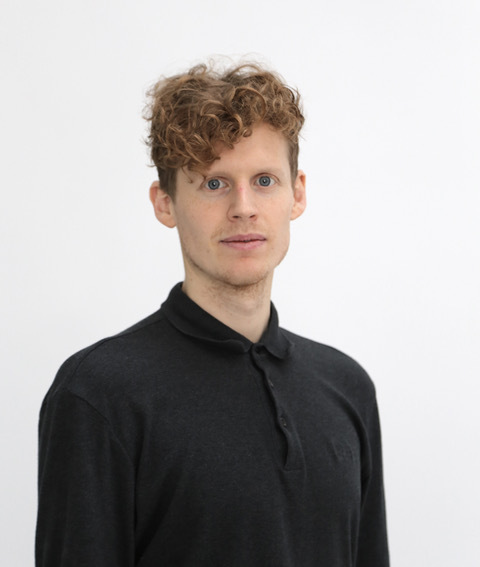 of Cambridge University about private and public climate governance for climate change mitigation in the U.S. and beyond.
of Cambridge University about private and public climate governance for climate change mitigation in the U.S. and beyond.
Dr. Kristian S Nielsen is a postdoctoral research associate at the Department of Psychology, University of Cambridge. Kristian received a PhD from Copenhagen Business School in 2019 with a dissertation examining the role of self-regulation in environmental behavior change. Kristian's current research focuses on behavior change in the context of climate change mitigation, biodiversity conservation, and sustainable clothing consumption.
Special thanks to David Dellinger for recording and editing this podcast.

Monday Oct 04, 2021
The Amazon is burning – is Paris too?
Monday Oct 04, 2021
Monday Oct 04, 2021
 Professor Myanna Dellinger interviews law professor and Brazilian attorney Dr. Carolina Arlota of the University of Oklahoma College of Law, who compares climate change action in Brazil to that in the United States. Among other things, she promotes the view that litigation may help advance the agenda even if positive outcomes are not achieved at the judicial scale because of, among other things, the “poltical question doctrine.” Professor Arlota also discusses the Brazilian Constitution, which promotes environmental protection.
Professor Myanna Dellinger interviews law professor and Brazilian attorney Dr. Carolina Arlota of the University of Oklahoma College of Law, who compares climate change action in Brazil to that in the United States. Among other things, she promotes the view that litigation may help advance the agenda even if positive outcomes are not achieved at the judicial scale because of, among other things, the “poltical question doctrine.” Professor Arlota also discusses the Brazilian Constitution, which promotes environmental protection.
This interview is based on Dr. Arlota’s article "The Amazon Is Burning—Is Paris, Too? A Comparative Analysis Between The United States And Brazil Based On The Paris Agreement On Climate Change" published in the Georgetown Journal of International Law, Vol. 52, 2020.
The findings demonstrate that, given the silence of the U.S. Constitution on environmental matters and the decades-long congressional inertia on climate issues, an effective way to update the U.S. constitutional text will be through judicial review. As the comparative analysis unveiled in this article shows, standing is a major barrier to judicial review on climate change claims. Accordingly, this article includes a recommendation for the flexibilization of the traditional standing requirements for the United States to achieve effective environmental protection and related mitigation of greenhouse gas (GHG) emissions.

Saturday Mar 06, 2021
Lisa Bloom on Veganism
Saturday Mar 06, 2021
Saturday Mar 06, 2021
Lisa Bloom, Esq.  is widely known for her tireless work for ordinary people seeking justice, especially victims of sexual harassment, domestic violence, LGBTQ discrimination, racial bias, sexual assault, and excessive police force. She and her team have won many verdicts and settlements against high profile people accused of misconduct, including sex offender Bill Cosby, serial sexual harasser Bill O’Reilly, Guess CEO Paul Marciano and billionaire Alki David. In this episode, she is talking about another passion of hers: veganism. Hear her passion shine through for animals, the health and wellbeing of people around the world, and recommendations for how you too can relatively effortlessly become a vegan or at least start your route towards this goal.
is widely known for her tireless work for ordinary people seeking justice, especially victims of sexual harassment, domestic violence, LGBTQ discrimination, racial bias, sexual assault, and excessive police force. She and her team have won many verdicts and settlements against high profile people accused of misconduct, including sex offender Bill Cosby, serial sexual harasser Bill O’Reilly, Guess CEO Paul Marciano and billionaire Alki David. In this episode, she is talking about another passion of hers: veganism. Hear her passion shine through for animals, the health and wellbeing of people around the world, and recommendations for how you too can relatively effortlessly become a vegan or at least start your route towards this goal.

Monday Feb 08, 2021
The Keystone Pipeline System: An Exercise in Futility
Monday Feb 08, 2021
Monday Feb 08, 2021
Hear law professors Sean Kammer (PhD) 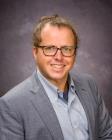 and Myanna Dellinger (PhD candidate) discuss why the corporate and conservative attempts at keeping the Keystone XL Pipeline and the Dakota Access Pipeline will inevitably fail and why, then, it would be more expedient from an environmental and business point of view to face reality sooner rather than later. This holds true despite the fact that any president does have the power to issue an Executive Order regarding the project.
and Myanna Dellinger (PhD candidate) discuss why the corporate and conservative attempts at keeping the Keystone XL Pipeline and the Dakota Access Pipeline will inevitably fail and why, then, it would be more expedient from an environmental and business point of view to face reality sooner rather than later. This holds true despite the fact that any president does have the power to issue an Executive Order regarding the project.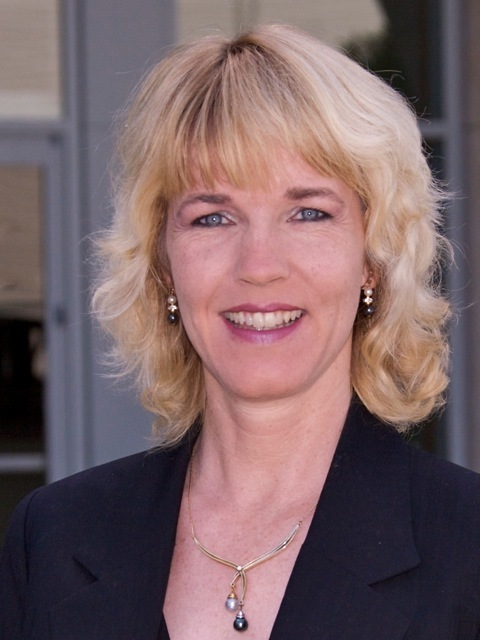
Under the Paris Agreement, we must, among other things, reach net zero emissions by 2050 to help the world – and ourselves – limit catastrophic climate change. UN and other experts have made it clear that we must take sufficient action within the next decade. For that reason, it also makes not sense to create and continue vast oil distribution networks.

Wednesday Dec 30, 2020
Fossil Fuel Industry Gaslighting People of Color
Wednesday Dec 30, 2020
Wednesday Dec 30, 2020
 The fossil fuel industry is not accepting its inevitable fate: that it has to go. While that is understandable from a purely capitalist business perspective, industry attempts to hang on for dear life by, for example, trying to persuade people of color and low-income people that natural gas is beneficial and “clean” would be laughable if they weren’t as scheming and focused on profits over the health of the planet as they are. Beware of industry tactics! Learn more here.
The fossil fuel industry is not accepting its inevitable fate: that it has to go. While that is understandable from a purely capitalist business perspective, industry attempts to hang on for dear life by, for example, trying to persuade people of color and low-income people that natural gas is beneficial and “clean” would be laughable if they weren’t as scheming and focused on profits over the health of the planet as they are. Beware of industry tactics! Learn more here.

Sunday Feb 11, 2018
The Green Amendment - Securing our right to a healthy environment
Sunday Feb 11, 2018
Sunday Feb 11, 2018
Attorney and activist Maya van Rossum, 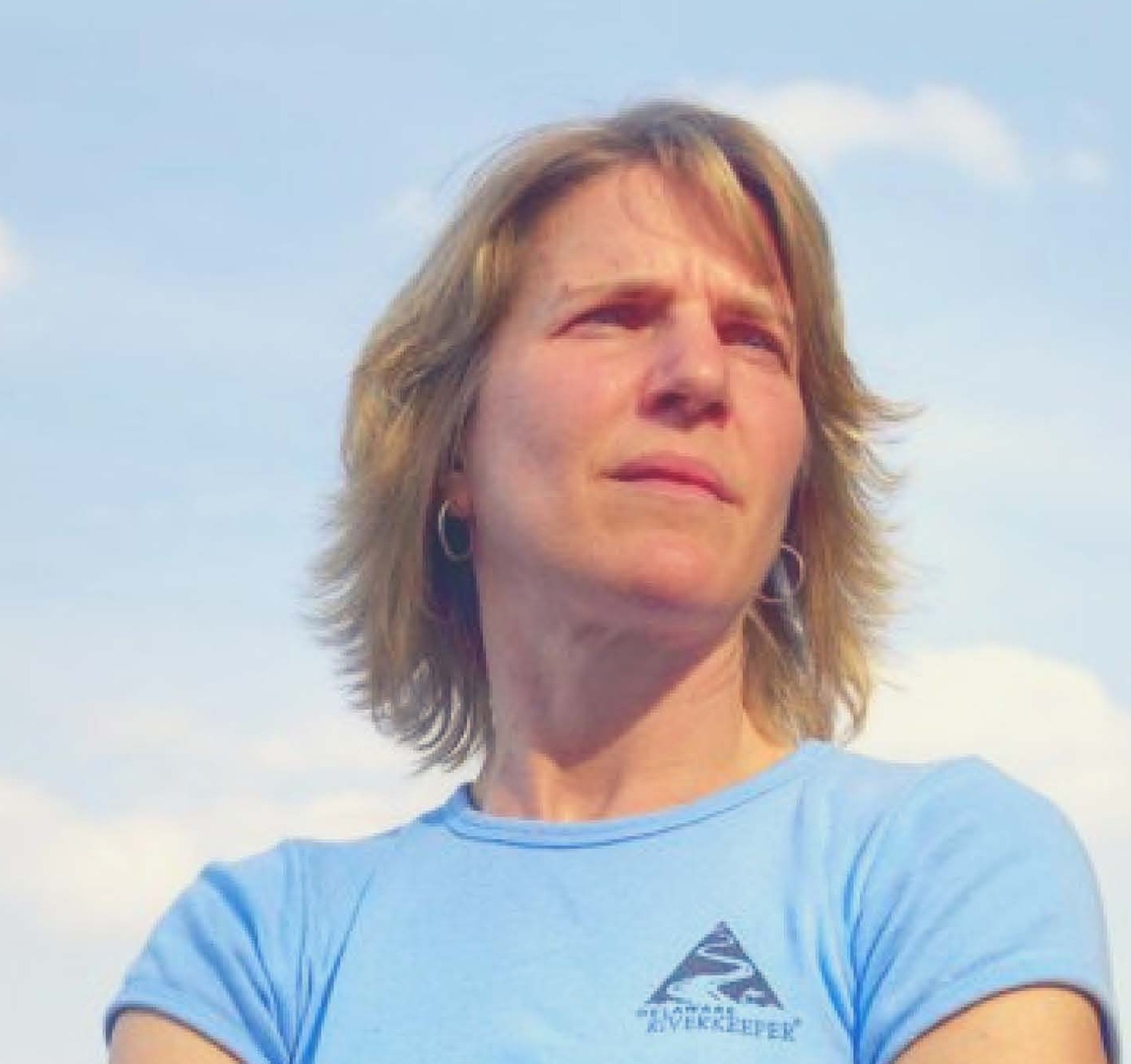 author of The Green Amendment: Securing Our Right to a Healthy Environment discusses a pioneering new legal strategy to fight growing pollution problems, including drinking water contamination, air pollution, deforestation and climate change, by adopting constitutional green amendments that guarantee a safe and healthy environment.
author of The Green Amendment: Securing Our Right to a Healthy Environment discusses a pioneering new legal strategy to fight growing pollution problems, including drinking water contamination, air pollution, deforestation and climate change, by adopting constitutional green amendments that guarantee a safe and healthy environment.
Van Rossum is also the leader of the Delaware Riverkeeper Network, an organization that has successfully stalled fracking and pipeline development in the Northeast. The DRN initiated For the Generations, a project that provides a guide to creating an environmental rights amendment in every US state.
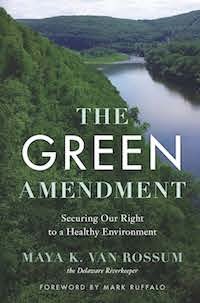
This veteran environmentalist used the constitution in Pennsylvania to take on and beat big fossil fuel industries, and how these amendments could change the legal landscape to crises such as Flint, Keystone, ad beyond.
Van Rossum believes that environmental rights are a fundamental human right, just like free speech and the right to private property.

Wednesday Aug 09, 2017
Sustainability and Governance - Taking Steps for the Future
Wednesday Aug 09, 2017
Wednesday Aug 09, 2017
Professor Myanna Dellinger interviews Christine Harada, the former Federal Chief Sustainability Officer under the Obama Administration. Ms. Harada is currently working with the XPRIZE Foundation as a Bold Innovator, developing the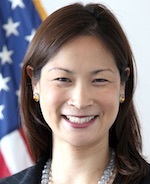 next XPRIZE for Clean Air. Christine is also a Senior Fellow with the Los Angeles CleanTech Incubator, where she helps build out the cleantech economy in Los Angeles, CA.
next XPRIZE for Clean Air. Christine is also a Senior Fellow with the Los Angeles CleanTech Incubator, where she helps build out the cleantech economy in Los Angeles, CA.
Christine explains what her duties were under the Obama Administration, and how those duties are (hopefully) being carried out under the Trump Administration.
This episode was recorded at Occidental College in Los Angeles.

Sunday Jun 11, 2017
Regenerative Agriculture
Sunday Jun 11, 2017
Sunday Jun 11, 2017
In this epispode, Professor Myanna Dellinger interviews David R. Montgomery, a MacArthur Fellow and professor of geomorphology at the University of Washington. He is author of The Hidden Half of Nature and Dirt: The Erosion of Civilizations, as well as other award-winning popular science books. He lives in Seattle with his wife, author and biologist Anne Biklé, and Loki, their guide-dog dropout.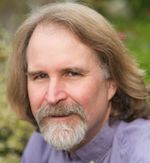
What if there was a relatively simple, cost-effective way to help feed the world, reduce pollution, pull carbon from the atmosphere, protect biodiversity, and make farmers money to boot? Through fieldwork spanning three decades and six continents, renowned geologist David R. Montgomery discovers that the answer is right beneath our feet. GROWING A REVOLUTION: Bringing Our Soil Back to Life [W. W. Norton & Company; May 9, 2017] is a spellbinding journey to uncover the blueprint for a regenerative agriculture that builds soil health and leaves both farmers and the environment better off. It is a book that Kirkus Reviews states is, “An optimistic look at how regenerate farming can revive the world’s soil, increasing food production, boosting cost effectiveness, and slowing climate change.”
In his quest to reveal the solutions beneath our feet, Montgomery introduces us to innovative farmers who practice regenerative agriculture. Montgomery shows that restoring fertility to the land is not an either-or choice between modern technology and time-tested traditions. Ending with a call for action beyond the fields, Growing a Revolution is an inspiring addition to the bookshelf of anyone seriously concerned with the future of food and farming, our relationship with nature, and the fate of civilization and the planet.

Wednesday May 17, 2017
The Logic and Controversies of Geoengineering
Wednesday May 17, 2017
Wednesday May 17, 2017
In this podcast hosted by Professor Myanna Dellinger, Dr. Stefan Schäfer presents his view on the pros and cons of the ever-controversial, but, in his view, also promising aspects of climate geoengineering. 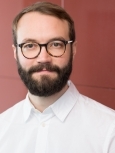
Dr. Stefan Schäfer is a political scientist interested in the history, philosophy and politics of science and technology. He leads a research group on climate engineering at the Institute for Advanced Sustainability Studies (IASS) in Potsdam and is Oxford Martin Visiting Fellow at the Institute for Science, Innovation and Society, University of Oxford. He was a guest researcher at the Berlin Social Science Center (WZB) from 2009-2012 and a fellow of the Robert Bosch Foundation’s Global Governance Futures program in 2014-2015. He is a contributing author to the Fifth Assessment Report of the Intergovernmental Panel on Climate Change, lead author of the European Transdisciplinary Assessment of Climate Engineering (EuTRACE) report, and chair of the Steering Committee of the Climate Engineering Conference (CEC) series. He holds a doctorate in political science from Freie Universität Berlin. See his profile at http://www.iass-potsdam.de/en/people/stefan-schaefer.

Thursday Mar 30, 2017
Super Smart Energy Grids
Thursday Mar 30, 2017
Thursday Mar 30, 2017
In this podcast, Professor Myanna Dellinger interviews Dr. Armin Haas on how smart energy grids could solve some of the issues surrounding sustainable energy.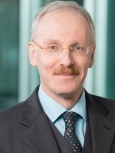
Armin Haas is a senior researcher in the Systemic Risk project of the Institute for Advanced Sustainability Studies, Potsdam (IASS), and leads the IASS activities within the EU Horizon 2020 projects Dolfins and Green-Win. Moreover, he leads the research line Integrated Risk Governance of the Global Climate Forum (GCF). At IASS his main research foci concern the economic, ecological and social sustainability of the financial system, and innovative contributions to the management and governance of systemic risks. At GCF, his research focuses on innovative approaches for the management of large-scale complex uncertainties. He holds a Ph.D. in economics from the University of Karlsruhe, Germany. Before joining IASS, he worked as senior scientist at the Potsdam Institute for Climate Impact Research (PIK) and headed the research group Bayesian Risk Management. Together with colleagues from PIK and IIASA, he conceived the SuperSmart Grid.

Tuesday Feb 21, 2017
Water Resources Management
Tuesday Feb 21, 2017
Tuesday Feb 21, 2017
In this podcast, Myanna Dellinger interviews Dr. Falk Schmidt on his experience and views regarding water resource management in today's world. 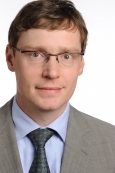
Dr. Falk Schmidt studied at Free University Berlin Philosophy, Business and Law. He got his PhD in Political Sciences, focusing on global freshwater governance. In the past 15 years, he has been working both in academia and the public sector, in Germany and with the United Nations. He joined the Institute for Advanced Sustainability Studies in 2010 and is currently the leader of an initiative that brings together science, policy and society for the implementation of the sustainable development goals in and by Germany.

Wednesday Jan 25, 2017
Transitioning Energy
Wednesday Jan 25, 2017
Wednesday Jan 25, 2017
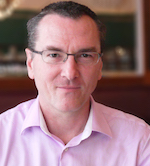 In this podcast, Myanna Dellinger interviews Craig Morris on his experience and views regarding how the German energy sector transitioned from fossil fuels to modern energy sources through grass-roots movements. The lessons learned have been adopted by other countries and maybe there is hope of using this model for an energy transition in more stubborn countries such as the United States.
In this podcast, Myanna Dellinger interviews Craig Morris on his experience and views regarding how the German energy sector transitioned from fossil fuels to modern energy sources through grass-roots movements. The lessons learned have been adopted by other countries and maybe there is hope of using this model for an energy transition in more stubborn countries such as the United States.
Craig Morris (@PPchef) is currently a Senior Fellow at the IASS. Coauthored with Arne Jungjohann, his book Energy Democracy is the first history of Germany’s energy transition, the Energiewende. He has served as technical editor of IRENA’s REmap and of Greenpeace’s Energy (R)evolution. In 2008, he cofounded Berlin’s PV Magazine; in 2010, Renewables International. In 2012, he became lead author of EnergyTransition.de. In 2014, he won the International Association of Energy Economists’ prize for energy journalism.

Monday Jan 16, 2017
Climate Geoengineering and Its Governance
Monday Jan 16, 2017
Monday Jan 16, 2017
What can we do today to work toward adequate governance of climate engineering down the road? In this podcast, Myanna Dellinger discusses with Matthias Honegger why governance urgently requires a global conversation open to all, which can help unearth concerns, risks and opportunities associated with various new ways to dealing with climate change in the context of expected future impacts from climate change itself. 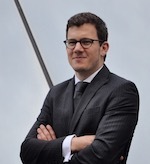
After studying environmental system sciences at the Swiss Federal Institute for Technology, Matthias Honegger has been working since the beginning of 2012 on international climate policy in developing countries and on climate negotiations as a consultant for various multilateral organizations and governmental bodies with the consulting firm Perspectives Climate Change (CV). During this time, he has actively followed and contributed to research on climate engineering and its governance and reflected about the climate engineering governance implications of the Paris Agreement (Harvard Viewpoints article). At the 22nd Conference of the Parties to the UN Framework Convention on Climate Change that took place November 2016 in Marrakech, Matthias has participated in what may well be the first serious conversations on this important issue area on the margins of international climate negotiations – including with negotiators representing countries from the global south and north. He also spoke in Marrakech on the need for a global conversation in a panel discussion (video). In his position at the Institute for Advanced Sustainability Studies (IASS), Matthias Honegger is undertaking social science research on questions regarding governance (mobilizing and regulating negative emissions technologies), and risks in context of direct interventions in the climate system and the growing threat from climate change.

Tuesday Aug 16, 2016
Loss and Damage under the Paris Agreement
Tuesday Aug 16, 2016
Tuesday Aug 16, 2016
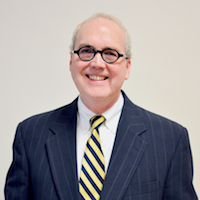

Wednesday Jul 20, 2016
Environmental Compliance and Enforcement in the United States EPA Regime
Wednesday Jul 20, 2016
Wednesday Jul 20, 2016
This interview was recorded on July 11th, 2016. Professor Myanna Dellinger interviews Rick Reibstein about the problems and issues surrounding the compliance and enforcement of environmental issues.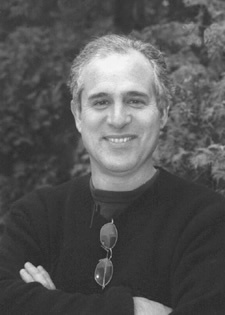
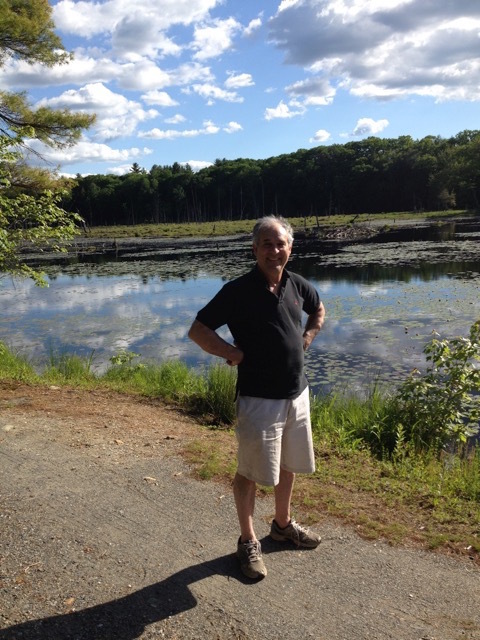

Monday Jun 27, 2016
Volkswagen Emission "Dieselgate" Scandal, Part II
Monday Jun 27, 2016
Monday Jun 27, 2016
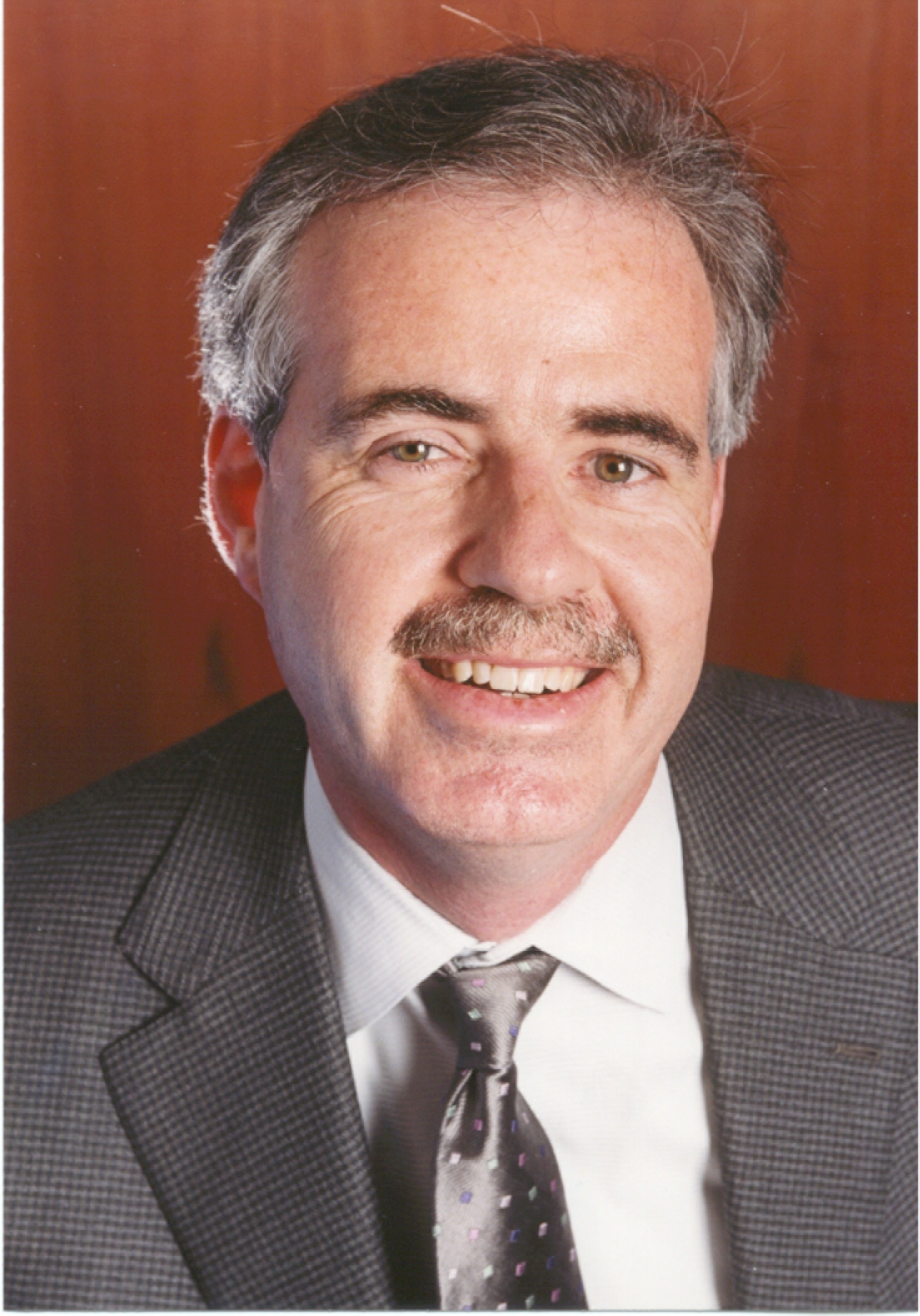

Sunday Jun 19, 2016
Volkswagen Emission "Dieselgate" Scandal, Part I
Sunday Jun 19, 2016
Sunday Jun 19, 2016
In the first of a two part series, Professor Dellinger interviews Björn Fasterling regarding the scandal that has rocked Volkswagen in what is now being called "Dieselgate".
Björn Fasterling is professor of law and the head of the law faculty at EDHEC Business School (Lille & Nice, France). His research and publications focus on ethics and compliance management in companies, and more recently on business and human rights. Prior to joining EDHEC, professor Fasterling practised as a German lawyer in the Berlin office of the Washington DC based law firm WilmerHale
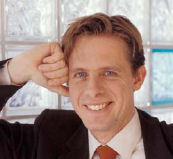
Update: After completing the two interviews on the VW “dieselgate” scandal, VW announced plans to launch 30 all-electric models to reposition itself as a leader in "green" transport. Matthias Mueller, chief executive of VW, said huge investments would be needed as the firm moves beyond the "dieselgate" scandal. Mr. Mueller hopes that by 2025, all-electric cars would account for about 20-25% of the German carmaker's annual sales.
Volkswagen has also agreed to take a series of steps costing about $10.2 billion to settle claims from its unprecedented diesel emissions cheating scandal in the U.S.

Tuesday Mar 22, 2016
Nuclear Power in France and Beyond, Part III
Tuesday Mar 22, 2016
Tuesday Mar 22, 2016
To avoid the worst effects of climate change, it has become clear that fossil fuels must be left in the ground. 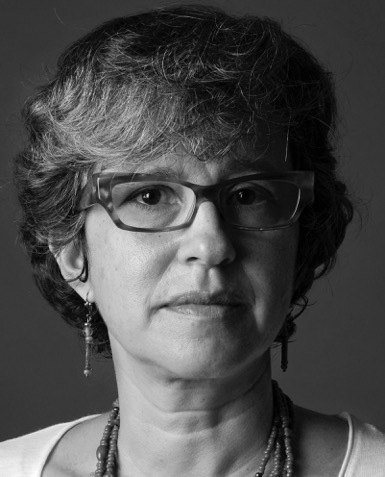
Nuclear power has resurfaced on the scene as a potentially viable energy source after the phase-out of fossil fuels. In this three part-series, you will be able to hear from experts in the field discuss both the pros and cons of nuclear energy and related future energy issues.
This is part three of the series. In this part, Professor Myanna Dellinger interviews Gabrielle Hecht. Gabrielle Hecht is professor of history at the University of Michigan. She is the author of two award-winning books: The Radiance of France: Nuclear Power and National Identity after World War II, first published by MIT Press in 1998 and reissued in 2009, and Being Nuclear: Africans and the Global Uranium Trade, which appeared in 2012.
Photo by Fernand Pio

Tuesday Mar 15, 2016
Nuclear Power in France and Beyond, Part II
Tuesday Mar 15, 2016
Tuesday Mar 15, 2016
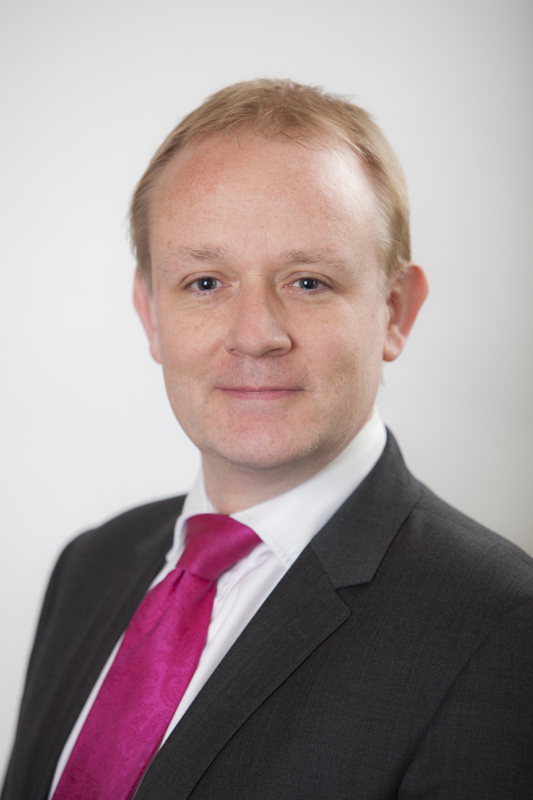 To avoid the worst effects of climate change, it has become clear that fossil fuels must be left in the ground. Nuclear power has resurfaced on the scene as a potentially viable energy source after the phase-out of fossil fuels. In this three part-series, you will be able to hear from experts in the field discuss both the pros and cons of nuclear energy and related future energy issues.
To avoid the worst effects of climate change, it has become clear that fossil fuels must be left in the ground. Nuclear power has resurfaced on the scene as a potentially viable energy source after the phase-out of fossil fuels. In this three part-series, you will be able to hear from experts in the field discuss both the pros and cons of nuclear energy and related future energy issues.
This is part two of the series. In this part, Professor Dellinger interview Dr Jonathan Cobb. Dr. Cobb is a Senior Communication Manager at the World Nuclear Association, based in London, United Kingdom. Dr Cobb began his career working in R&D for British Nuclear Fuels before focusing on climate change, sustainable development and energy policy. He joined the World Nuclear Association in 2005 as their advisor on climate change. He has represented the World Nuclear Association at the UNFCCC climate change meetings since 1999 and most recently attended COP 21 in Paris in 2015.
Thanks for listening!
Myanna Dellinger
Associate Professor of Law
University of South Dakota School of Law

Monday Feb 22, 2016
Nuclear Power in France and Beyond
Monday Feb 22, 2016
Monday Feb 22, 2016
To avoid the worst effects of climate change, it has become clear that fossil fuels must be left in the ground. Nuclear power has resurfaced on the scene as a potentially viable energy source after the phase-out of fossil fuels. In this three part-series, you will be able to hear from experts in the field discuss both the pros and cons of nuclear energy and related future energy issues.
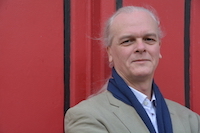
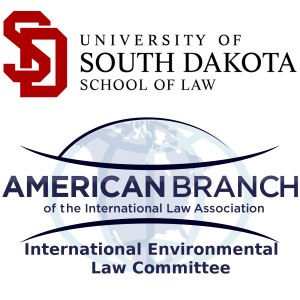
Wednesday Nov 11, 2015
Environmental Law in China: A Paper Tiger or Actual Change?
Wednesday Nov 11, 2015
Wednesday Nov 11, 2015
China has declared “war on pollution” with several new environmental laws and the willingness to take action against climate change. Awareness of the severe and lingering environmental problems in China is increasing, both domestically and externally. Does this truly mean that China will finally take meaningful, active steps to combat air, water and land pollution, or are the initiatives merely aspirational with other issues continuing to take precedence despite much promising rhetoric? In this podcast, Myanna Dellinger interviews three law professors with unique insight into Chinese environmental law and its potential enforcement.
Joseph W. Dellapenna is a Professor of Law at Villanova Law School. His research focuses on water management (national and international) and international and comparative law. He has previously taught at several universities in the United States and abroad. He is the only person ever to be a Fulbright Senior Lecturer in Law in both the People’s Republic of China and the Republic of China. Professor Dellapenna has also served as a consultant to numerous private entities and foreign governments, including the World Bank, the Harry S. Truman Research Institute for the Advancement of Peace of the Hebrew University of Jerusalem, the People’s Republic of China, as well as the Republic of China. Professor Dellapenna lived for two years in China and still returns several times a year for professional purposes. He lived in China for two years and speaks Mandarin.
Joel A. Mintz is a Professor of Law at Nova Southeastern Law Center where he has taught courses related to environmental law since 1983. Before entering academia, Professor Mintz was an enforcement attorney and chief attorney with the EPA in Chicago and Washington, D.C. Widely viewed as one of the nation’s leading legal academic experts on environmental enforcement, Joel Mintz has testified before the United States Congress on the subject and published three books and numerous book contributions and law review articles regarding it. Professor Mintz is also the author or co-author of six other books regarding environmental law, sustainability, and municipal debt financing. He is a recipient of several awards for his work as an attorney, teacher and scholar. He is also an elected member of the American Law Institute and a Fellow of the American Bar Foundation.
Alex Wang is an Assistant Professor of Law at UCLA School of Law. His research focuses on Chinese law, politics, and environmental regulation. Professor Wang previously served as senior attorney for the Natural Resources Defense Council (NRDC) in Beijing and as the founding director of NRDC’s China Environmental Law & Governance Project. In this capacity, he worked with China’s government agencies, legal community, and environmental groups to improve the environmental rule of law and strengthen the role of the public in environmental protection. He helped to establish NRDC’s Beijing office in 2006. He was a Fulbright Fellow to China from 2004-05. Professor Wang was a fellow of the National Committee on United States-China Relations (2008-10) and is a member of the Council on Foreign Relations and the Advisory Board to the Asia Society’s Center on U.S.-China Relations.

Monday Sep 21, 2015
Asset Owners Disclosure Project
Monday Sep 21, 2015
Monday Sep 21, 2015
- Julian Poulter is the founder and Chief Executive Officer of the AODP.
- Sarah Barker is a Special Counsel in the Corporate Group in Minter Ellison's Melbourne office, and has published extensively on trustee fiduciary duty and climate risk. Ms. Barker provides advice to AODP on climate risk and fiduciary duty in the Australian context.
- Jay Youngdahl is a partner in the Houston-based law firm, Youngdahl & Citti, P.C. He is currently a Visiting Scholar at the College of Business at San Francisco State University and has been a Senior Fellow with the Hauser Institute’s Initiative for Responsible Investment at Harvard University. Mr. Youngdahl provides advice to AODP on fiduciary law and climate change risk in the United States.

Sunday Jun 14, 2015
The Oslo Principles on Global Climate Change Obligations - part 2
Sunday Jun 14, 2015
Sunday Jun 14, 2015
On March 1, 2015, a group of experts in international law, human rights law, environmental law, and other law adopted the Oslo Principles on Global Obligations to Reduce Climate Change. These experts came from national and international courts, universities and organizations located around the world. In part two of two podcasts on the Oslo Principles, Professor Myanna Dellinger interviews Philip Sutherland, a Professor at the Stellenbosch University Faculty of Law in South Africa. Professor Sutherland was one of 13 experts contributing to the recent formulation of the “Oslo Principles on Global Climate Change Obligations” and will be adding his insight to the previous comments by Professor Gerrard on the Principles. Prof Sutherland teaches and researches in the areas of corporate, competition and financial services law. He has published more than 35 articles and chapters in books in these fields. His main focus is currently the broader societal impacts of business activities.

Sunday May 31, 2015
The Oslo Principles on Global Climate Change Obligations
Sunday May 31, 2015
Sunday May 31, 2015

Monday Apr 27, 2015
Kenya, Environment and Public Participation
Monday Apr 27, 2015
Monday Apr 27, 2015
In this podcast, Professor Myanna Dellinger interviews attorney Ruth Nzioka who is a legal intern with the Institute for Institute for Law and Environmental Governance (ILEG) in Nairobi, Kenya. ILEG is an independent, non-profit public interest law and policy organization focused on promoting sustainable development. We work with local communities, governments, the private sector and civil society organizations (CSOs) to ensure fair, balanced and equitable development policy choices to improve peoples’ lives and protect the environment.
Professor Dellinger spoke with Ms. Nzioka in Eugene, Oregon in early March about what she sees as pressing environmental issues in Kenya and the African continent in general. Ms. Nzioka has a particular interest in public participation in environmental law and talks about why she sees public participation as important to the future of environmental governance in Kenya.
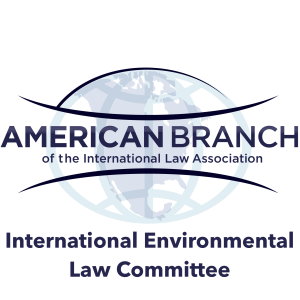
Friday Feb 20, 2015
Atmospheric Trust Litigation
Friday Feb 20, 2015
Friday Feb 20, 2015
Does anyone have legal rights to “the atmosphere” and thus a stable climate? Professor of Law Mary Wood argues that governments in the United States and abroad hold the atmosphere in trust for the general public and are thus accountable for reducing carbon pollution to protect the climate for current and future generations. Tracing the origin of the well-established public trust doctrine to Roman law, Professor Wood discusses with Associate Professor of Law Myanna Dellinger how this enduring principle of law has resulted in judges requiring governments to protect, for exampe, rivers, lakes and oceanfronts. Professor Wood explains how some NGOs have recently brought suit under the public trust doctrine for government-scale failures to mitigate climate change through legislative or regulatory action and explains why this is sound policy in the nick of time.

Saturday Jan 31, 2015
CO2 Warning Labels on Gas Pumps in Berkeley, California
Saturday Jan 31, 2015
Saturday Jan 31, 2015
Starting in the spring of 2015, the city of Berkeley, California, will require that warning labels featuring the following text be affixed to gas station pumps:
The U.S. Environmental Protection Agency (EPA) has determined that consumption of energy products derived from fossil fuels contributes to climate change. To learn about how you can help reduce greenhouse gas emissions, go to: www.cityofberkeley.info/fuel.
The Western States Petroleum Association has threatened to file suit, claiming that the labeling program imposes "onerous restrictions" on businesses and "compels speech in violation of the First Amendment of the United States Constitution."
In this podcast, hear Myanna Dellinger and Dr. Wil Burns discuss with two Berkeley energy and community environment advisory commissioners why the city chose to require gas stations to use such labels, what the expected health-related and environmental effects will be in and beyond the San Francisco area, and why the city believes it is on a strong footing in relation to a potential lawsuit based on the requirement.
Agenda of the Berkeley City Council meeting of Tuesday, November 18, 2014 . The Western States Petroleum Association has not responded to our request for the Association’s view on the matter. Should such comments be provided to us in the near future, they will be featured in an individual podcast here.

Thursday Jan 15, 2015
Climate Geoengineering
Thursday Jan 15, 2015
Thursday Jan 15, 2015
Climate change... should it be solved by governments at various scales or by technological innovation? Or is there a third path  involving both options? In this podcast, Dr. Wil Burns discusses how climate geoengineering might find some valuable use as a temporary and limited method of alleviating the dire and urgent effects of climate change until a long-term solution to the underlying problem can be found. Dr. Burns takes a pragmatic scientific approach to the somewhat controversial issue of geoengineering, but does not advocate it as an end-all, be-all solution. After explaining the currently most promising geoengineering techniques, Dr. Burns discusses with Associate Professor of Law Myanna Dellinger the known socio-legal, political and corporate ramifications of looking to technology instead of supranational legal agreements for solutions to climate change.
involving both options? In this podcast, Dr. Wil Burns discusses how climate geoengineering might find some valuable use as a temporary and limited method of alleviating the dire and urgent effects of climate change until a long-term solution to the underlying problem can be found. Dr. Burns takes a pragmatic scientific approach to the somewhat controversial issue of geoengineering, but does not advocate it as an end-all, be-all solution. After explaining the currently most promising geoengineering techniques, Dr. Burns discusses with Associate Professor of Law Myanna Dellinger the known socio-legal, political and corporate ramifications of looking to technology instead of supranational legal agreements for solutions to climate change.